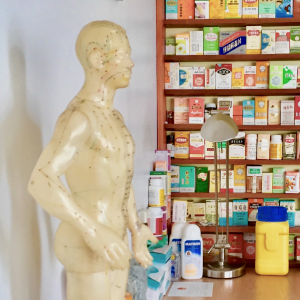
Welcome to our new Acupuncture students
The Irish College of TCM in Dublin is pleased to welcome a new group of students to our Acupuncture Training programme. The new intake started their studies with us on ...
Stay up to date with the latest news and events from the ICTCM

The Irish College of TCM in Dublin is pleased to welcome a new group of students to our Acupuncture Training programme. The new intake started their studies with us on ...
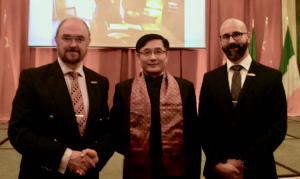
The Director of the Irish College of Traditional Chinese Medicine, Tom Shanahan, and one of the college’s Clinical Supervisors Michal Niedzialkowski were pleased to attend an event hosted by the ...
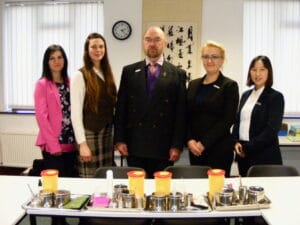
The Irish College of Traditional Chinese Medicine (ICTCM) is delighted to congratulate the recent graduates of the Lic.TCM Professional Acupuncture training programme. It is always a pleasure to see graduates ...
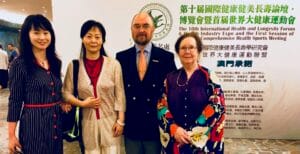
During our recent visit to Hong Kong, Guangzhou and Macao we were delighted to meet old friends in the TCM and Qigong field, and to make new ones. At a ...
Professor Tom Shanahan and Registrar Mary Plunkett have each been invited to make a presentation at the Nei Dao Qigong Symposium being held in Rome in October 2017. Each presentation ...
Acupuncture TCM is a treatment method of Traditional Chinese Medicine which can be effectively used to treat pregnant women and small infants. The photograph shows one of the new graduates ...
Congratulations to Daisy Xia – Daughter of our Qigong Masters Professor Song Xinhong and the late Professor Xia Shuangquan- on her graduation with a DACM from the Southern California University ...
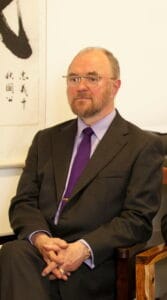
The Founder and Director of the Irish College of Traditional Chinese Medicine (ICTCM), Prof. Thomas Shanahan, recently had great pleasure in accepting the position of Vice-chairman of a Specialist Committee ...
Madam Tu Youyou, an 84 year old Chinese Pharmacologist has been awarded the Nobel Medicine Prize for her work on the development of artemisinin, a plant derivative that has significantly ...
To commemorate our twenty years of teaching the Diploma in Chinese Herbal Medicine at the ICTCM we have had a new college badge produced which includes the Chinese character for ...